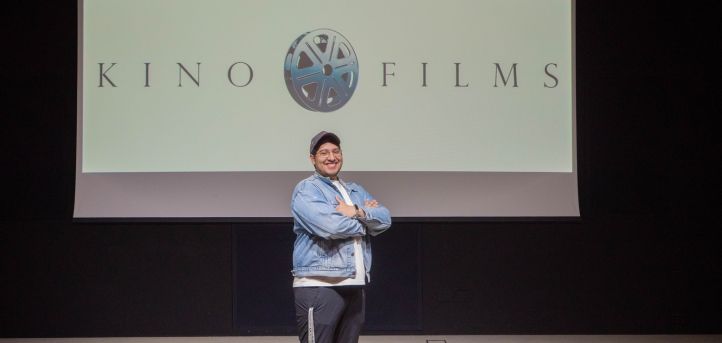Jacobo Chacón, fourth year student of the Audiovisual Communication (CA) degree at the European University of the Atlantic (UNEATLANTICO) has screened his short films in the audiovisual room of the Caja Cantabria Foundation, with free admission for attendees.
The presentation of Chacón’s work brought together a hundred people at the CASYC Up, giving an insight into his work and its evolution over the last few years. The screening began with a presentation by Jacobo Chacón, introducing the six short films. The first of them, entitled “Pepe Grillo“, criticises the challenges that society continues to impose on members of the LGTB community in Latin America, as well as a call for respect for all, regardless of their sexual orientation.
This was followed by “El Reloj de Anemoia” which, according to Chacón, reflects “the reunion with the past through objectives, feeling nostalgia for something or someone we have never known”. The third short film of the afternoon was “The Last Bullet“, which draws inspiration from The Last of Us saga, in which the protagonist faces a dystopian world. This was followed by the screening of “Traiciones”, a short fiction film that the student presented at the Piélagos Film Festival. As a prelude to the premiere of his latest short film, the short film “La última brisa de verano” (The Last Summer Breeze) was shown. It should be noted that this short film received five nominations, including best short film and best direction at the III Short Film Festival of UNEATLANTICO, held recently.
“Los sueños perdidos de Lucía”, Chacón’s latest work.
The UNEATLANTICO student took the opportunity to premiere his latest short film. “Los sueños perdidos de Lucía” presents a young girl who, in an effort to support her family, has left her studies to work in the world of prostitution, without her family knowing about it. The audiovisual work presented reflects on the problem of prostitution and the physical and psychological risks for the women involved, who are often victims of human trafficking.
The Caja Cantabria Foundation stresses that “each short film offers a unique look at the vision and skills of the director”.
Jacobo, reflecting on his academic and professional career, reflects: “In my experience I believe that the learning I received from the university provided me with the door to a combination of theoretical and practical knowledge in the area of communication in general”. In addition, he highlights the access to resources such as the TV set that function as a very important tool as it is a space that allows students to record, light and even practice shots for their work.
Finally, Jacobo encourages students to make their first short film or documentary without waiting until they know everything before starting: “I invite them to come up with a good idea, work on it and take it to production without fear, because you can learn from that too”.


